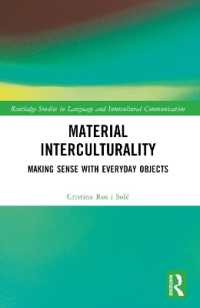Full Description
How do states respond to the new diversity? Providing a striking image of societal accommodation through the prism of cemeteries, this book compares state responses to Muslim and humanist burial needs. Such accommodation is typically understood in terms of national models. French laïcité, Dutch pillarisation, or Norwegian establishment, authors argue, explain how these countries react to newcomers. This book shows that, upon closer scrutiny, policy responses follow distinctive logics when compared between levels of governance. Furthermore, it shows that we have to look at material solutions as well. While indeed large legal and discursive national differences between states remain, in praxis they do the same. Synthesising a religious governance framework from the social sciences with insights from post-colonial and religious studies, the book suggests a methodologically more coherent research agenda for the comparative study of religion, secularism, society and state.








